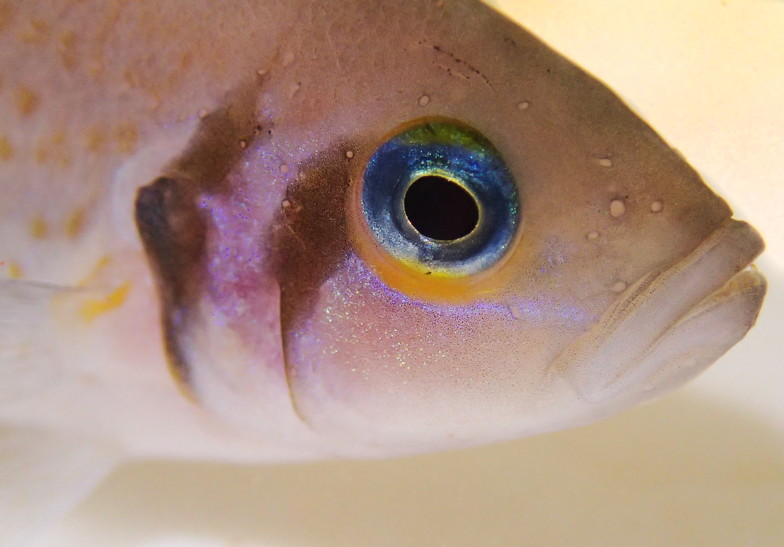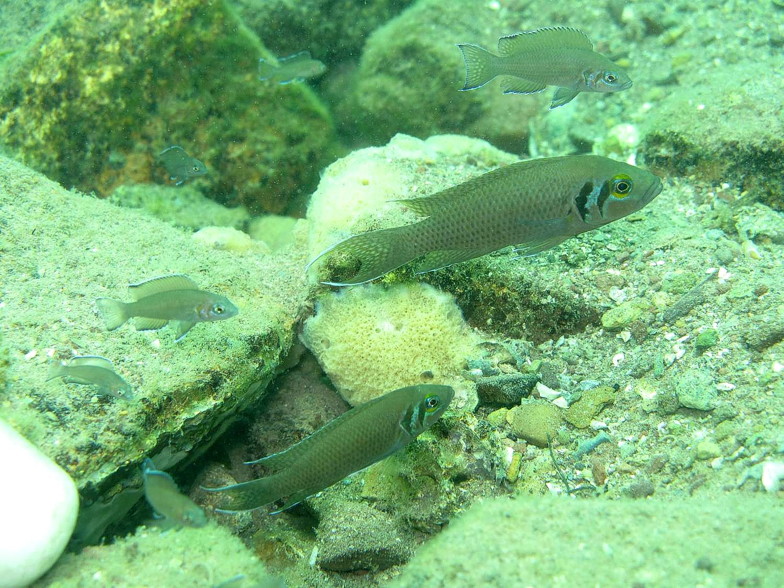Lake Tanganyika princesses make choices early in life
Freshwater fish, known as Princesses of Lake Tanganyika, decide in the first two months of their lives whether to stay in their colony or head off into the unknown to set up their own, according to University of Bern researchers.
Author: Morven McLean, International Relations Office

They also found that the fish fall into one of two behavioral types: submissive or helpful. Submissive fish do not help much in the group but tend to stay. The other type, while helpful, leave the colony.
“Although they can live for many years, these cichlids specialize very early. And that has so far only been seen in a few social insects like bees or ants where the other workers in the hive decide whether they will be a worker, a defender of the group or be reproductive,” says Professor Barbara Taborsky, who leads the team.
The researchers believe their findings mark a big step forward in understanding the behavior displayed by highly social animals, such as meerkats, insects and fish, including Neolamprologus pulcher. They are all cooperative breeders, where group members help parents to raise their young.

Polluted paradise
University of Bern researchers have been studying this cichlid for more than 20 years, paying annual visits to a permanent field site at Lake Tanganyika in Eastern Africa, to gain a better understanding of cooperative breeding in the wild.
The lake is the world's second largest freshwater lake. It was once an ecological paradise but is now plagued by human-made problems. Sewage, overfishing and plans to dig for oil all threaten the lake’s future, which is home to 99 per cent of the species.
N. pulcher is one of roughly 250 cichlid species living in Lake Tanganyika, nearly all of which are only seen in this body of water and nowhere else in the world. Beyond this African Great Lake, 2,000 to 3,000 cichlids species occur in tropical waters around the globe. Many of them are a popular choice for home aquariums.
Lab work
In Bern, this early development research is all done in the laboratory. For the project in question, Taborsky’s team bred around 400 fish, which they exposed to different conditions for the first two months of their lives.
The young fish either grew up with the breeding pair, without the breeding pair and with or without experience with predators. After two months, they were transferred to a neutral environment and observed for three years. Despite the large number of fish, the researchers soon got to know them individually.
As for the future, the next step is to breed and run tests on the second generation of cichlids to see whether they show the same split between submissive and helping behavior as in the first generation. This could reveal that the mothers can influence the behavior of their offspring.
13.08.2018
Read the paper
Publication
Stefan Fischer*, Lena Bohn, Evelyne Oberhummer, Cecilia Nyman, Barbara Taborsky: Divergence of developmental trajectories is triggered interactively by early social and ecological experience in a cooperative breeder.
Proceedings of the National Academy of Sciences of the United States of America (PNAS), 2017, DOI:
* Now at Mammalian Behaviour and Evolution Group, Institute of Integrative Biology, University of Liverpool
